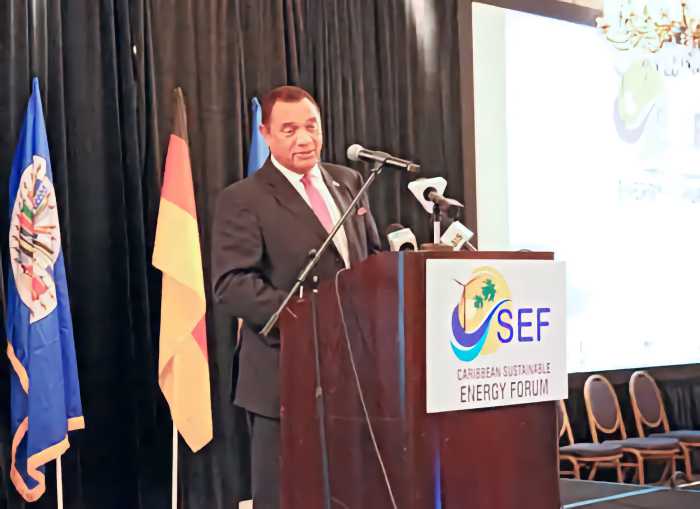As the Trump administration weighs whether to end Temporary Protected Status (TPS) for thousands of Haitians and Salvadorans, three members of the United States Congress are preparing legislation that would allow every TPS recipient to apply for permanent residency.
The bill, dubbed the ASPIRE Act, would let every person covered by TPS before Jan. 1, 2017 to apply for permanent residency by proving before a judge that they would face extreme hardship if forced to return home, reported the Miami Herald on Monday.
“The Temporary Protected Status program was created with bipartisan support to protect human life,” said New York Democratic Congresswoman, Yvette Clarke, the daughter of Jamaican immigrants, who plans to introduce the legislation with Miami Republican Congresswoman Ileana Ros-Lehtinen and Washington Democratic Congresswoman Pramila Jayapal.
“It advances American interests and values, and we must work in a bipartisan manner to do the right thing and protect hardworking immigrants from being sent back to countries, where their physical well-being could be cast into doubt,” added Clarke, who represents the predominantly Caribbean 9th Congressional District in Brooklyn.
The bill also creates a new form of “protected status” for TPS recipients who have been in the United States for at least five years, according to the Herald.
It said that instead of waiting for renewal or revocation of their status every 18 months, current TPS recipients would be able to stay in the US for a renewable six-year period, though they would not be eligible for permanent residency if they cannot prove extreme hardship.
Clarke’s proposal is more expansive than a bill sponsored by Miami Republican Congressman Carlos Curbelo that would provide a path to permanent residency for TPS recipients from Haiti, Nicaragua, El Salvador and Honduras who arrived in the US before Jan. 13, 2011, the Herald said. It said Ros-Lehtinen and Miami Republican Congressman Mario Diaz-Balart have signed on to Curbelo’s bill.
The ASPIRE Act would also correct what Clarke’s office calls an “error” in existing law that requires TPS recipients who arrived in the US illegally to leave the US and reenter to adjust their status, the Herald said.
Instead, it said, a TPS designation would be enough of a reason to apply for permanent residency without having to leave the country.
Last week, the Trump administration announced that TPS for about 2,000 Nicaraguans will end in January 2019, while about 60,000 Hondurans will get a six-month TPS extension until July 2018, instead of the typical 18 months.
The US Department of Homeland Security is yet to announce a decision for Haiti and El Salvador. A decision on Haiti must be made by Thanksgiving, Nov. 23, the Herald said.
Clarke said her bill could attract Republican support because it does not automatically give TPS recipients a path to permanent residency. A judge must find that a TPS recipient would face extreme hardship if they return home.
“We’re not handing out green cards here,” said Clarke’s spokeswoman Christine Bennett.
With the bulk of Haiti’s 50,000 TPS recipients residing in Florida, every member of Congress who represents South Florida is in favor of extending TPS for Haiti, the Herald said.
But it said the Trump administration is hesitant to embrace any immigration policies that expand immigrant protections, noting that TPS was always meant to be a temporary solution for people affected by natural disasters or armed conflict.
While TPS is a major issue in Florida, Ros-Lehtinen questioned how much the Republic-controlled Congress cares about the program, which affects over 300,000 people.
“I spoke yesterday about TPS, had hardly anyone ask me about it. I spoke again today about TPS, radio silence from my colleagues,” Ros-Lehtinen said last week. “There’s just no interest for immigration reform generally, and I don’t think there’s much appetite to help these two particular groups of people. It hurts to say it but it’s the political reality.”



























